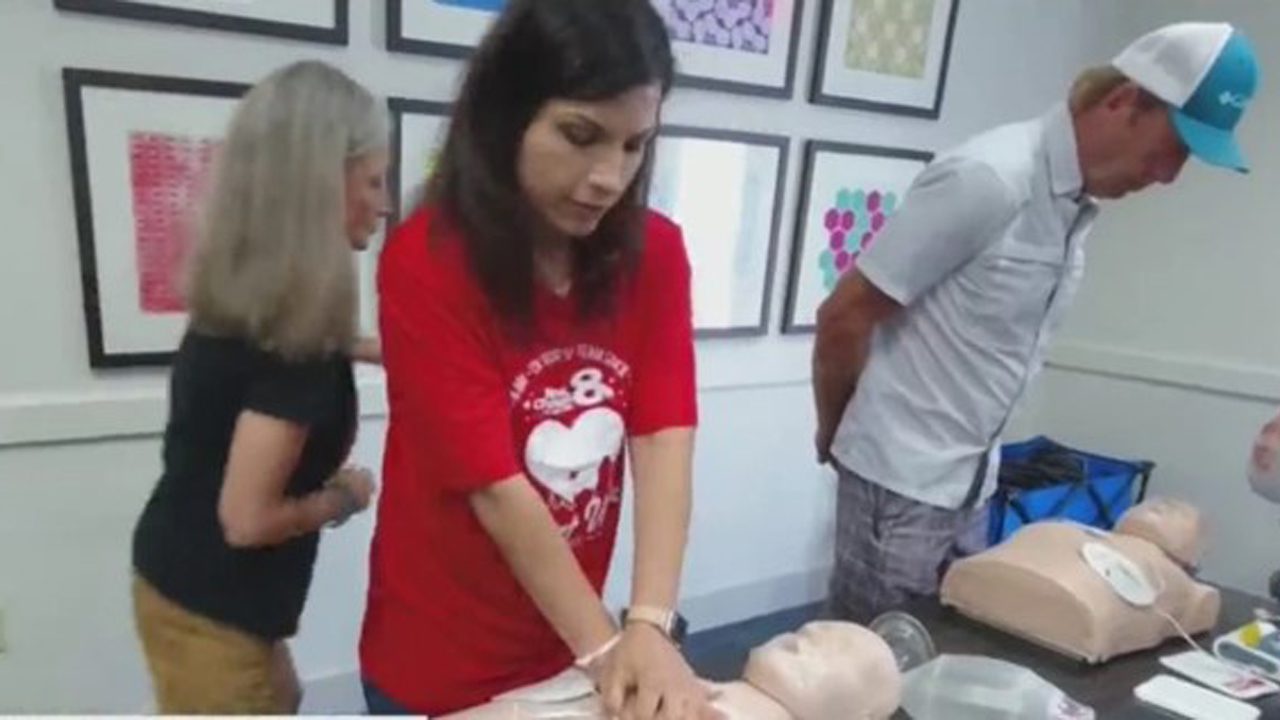Florida does not require nurses be CPR certified
WFLA | By Mahsa Saeidi | Updated July 6, 2023
TAMPA, Fla. (WFLA) — When a heart stops, there are just moments left to act in order to save a life.
To be a lifeguard, you need to be CPR certified. To get a job as a babysitter, you need to be CPR certified. But to be a nurse in Florida, you don’t need to.
A nursing director in Tampa Bay turned to 8 On Your Side with concerns, saying her colleagues were letting their CPR certifications lapse.
The state had cited the facility where she worked for failing to provide CPR after a patient died.
8 On Your Side learned that Florida does not require nurses to keep this life-saving skill fresh and wanted to know why.
So, who is in charge of making sure nurses keep critical skills up to date? What Investigator Mahsa Saeidi found out may surprise you.
In a hotel conference room in Citrus County, Beth Huntsberry and Mahsa learned how to save a life. Their “patient” was in trouble. Their heart had stopped, and they weren’t breathing or responding.
Both Beth and Mahsa took turns administering CPR. Thirty compressions, followed by two rescue breaths.
Lisa Britt, an instructor with In-Pulse CPR, taught the four-hour course. The CPR certification is valid for two years, then it expires.
“So you have to do it every two years because recommendations change?” asked Saeidi.
“Sometimes they do,” said Britt. “Also, if we don’t use it for a while, then we might forget.”
“You just keep up on this. This is what you do,” said Deborah Nicolo, a registered nurse who most recently worked at a nursing home in Tampa.
The Florida Agency for Healthcare Administration or AHCA regulates nursing homes. 8 On Your Side pulled state inspection reports and found that in May, Nicolo’s facility was cited for four deficiencies.
An AHCA spokesman tells 8 On Your Side that nurses had failed to provide CPR “upon finding a resident unresponsive.”
“I felt, as director of nursing, there was a delay in care,” said Nicolo. “Eighty percent of nurses who work in that building were not certified.”
Nicolo did an audit after the death of a resident. According to an AHCA inspection report, she told inspectors 80% or four out of five nurses had let their CPR certifications lapse.
“The excuses from a lot of the nurses, ‘well nobody reminded us,’” Nicolo recalled. “Nurses in every state are to be CPR certified.”
But is that so?
AHCA told 8 On Your Side nursing homes must have an “adequate number” of nurses “who are properly trained and/or certified.” In other words, AHCA doesn’t require nurses to be CPR certified. Neither does the Florida Department of Health.
A DOH spokesman told 8 On Your Side that “certifications…are determined by the employer.”
So, we turned to the Florida Board of Nursing, which is in charge of setting safe standards and issuing licenses but they don’t require CPR certification either.
Back to Beth Huntsberry.
“I am…I have no words,” she said. “I’m shocked that it’s not required.”
Beth is a yoga teacher who has been getting certified every two years since she was 22 years old.
“Every yoga studio, every school, every high school, every college requires trainers to be certified, in both CPR, AED and first aid,” Beth said.
To be clear, we don’t know if CPR would have saved the life of this patient, but Nicolo says it would’ve given them a shot.
8 On Your Side called the nursing home to talk about this event and the state’s actions. The administrator said she could not comment.
However, in the inspection report, the facility stated that the “alleged deficiencies” did not jeopardize the health or safety of patients.
AHCA has issued a plan of correction.






